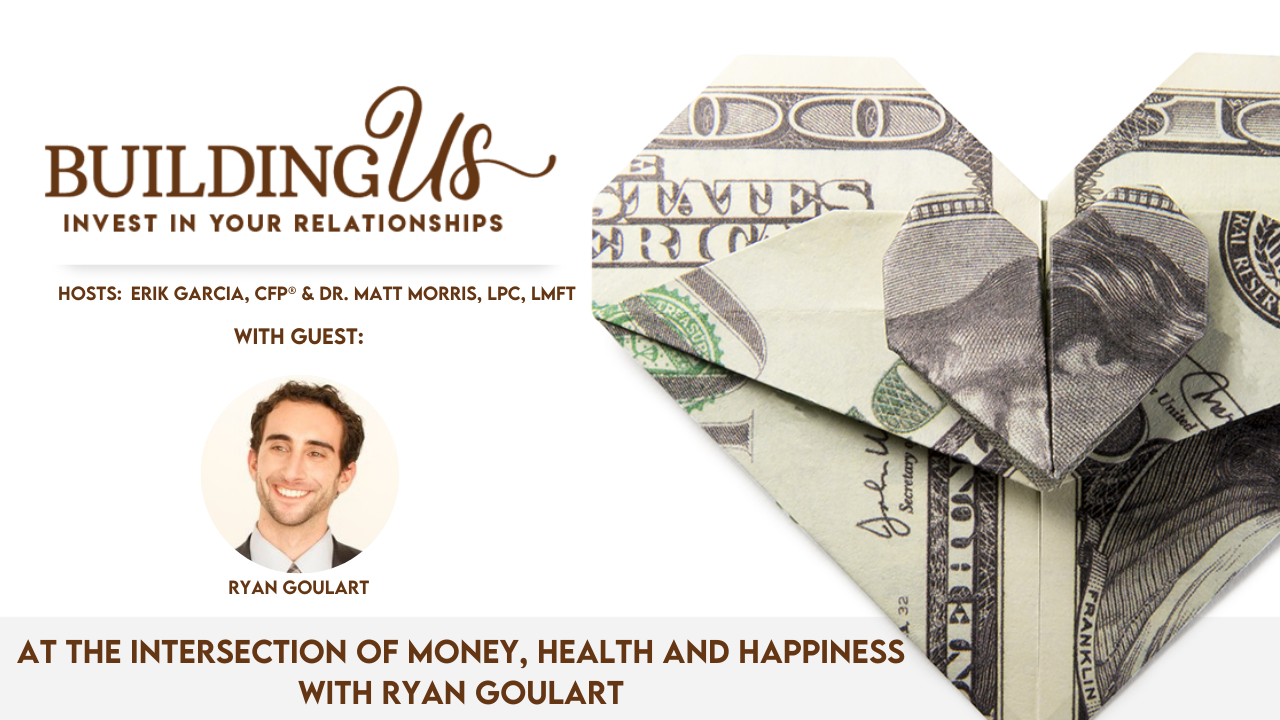At the Intersection of Money, Health and Happiness With Ryan Goulart

Why do people do what they do? And, is it possible for one to be who they would ideally like to be, more often? In this episode of the Building Us podcast, Ryan Goulart, co-author of Leveraging Your Financial Intelligence: At the Intersection of Money, Health and Happiness, joins Dr. Matt Morris, LPC, LMFT, and Erik Garcia, CFP® to discuss how financial stress impacts our physical health, emotional well-being, and why understanding your values helps guide your behaviors.
Episode Highlights:
- What’s a typical vacation for Ryan? (5:01)
- Ryan gives a brief background of what Think2Perform is all about. (11:31)
- Ryan mentions the five values he utilizes on his best day. (14:24)
- Ryan explains why one of his values is health. (16:16)
- Ryan shares why he had viewed himself as indestructible. (18:07)
- Ryan explains what financial intelligence means. (20:36)
- Ryan shares why it’s important to understand values. (25:07)
- Ryan mentions why values are a huge point of differentiation. (33:01)
- What were Ryan’s foundational ideas that have become clear in a new way over the last 18 months? (35:02)
- Ryan explains the alignment model. (42:27)
Key Quotes:
- “My values happen to be integrity, family, health, excellence, and achievement. So, on my best day, I am utilizing all five. Now, that’s extremely, extremely hard for a lot of variables. But, if I see that and reflect on my values, and think about those values as I make choices throughout my day, then my behavior gets in line. Then, my goals for myself get in line.” – Ryan Goulart
- “One of my values is health, and I want to be healthy. I define health as I want to be both mentally healthy, financially healthy, and physically healthy. So, I need to do something in the moment right now to be able to fix that.” – Ryan Goulart
- “Values and value-based decisions can help guide that behavior. It’s not going to mean that just because you know your values, you’re going to be immune to poor decisions, but it increases the likelihood and increases the probability that the decisions you make will be value-based.” – Ryan Goulart
